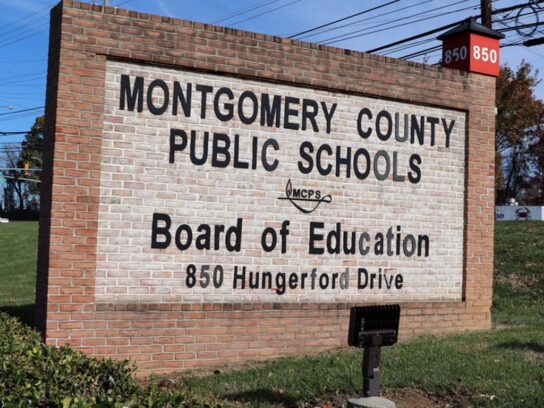
Members of the Montgomery County Board of Education are expected to vote Tuesday afternoon on a resolution that would cede their authority on land use decisions “of a routine nature” to the superintendent, who then would be able to delegate that power to the director of facilities management.
Under the request from Superintendent Monifa McKnight, “the superintendent of schools or his/her designee” will approve and execute permanent easements, utility easements, rights-of-way, rights-of-entry, memoranda of understanding for land-related issues, and land-related agreements of a routine nature with governmental entities and adjoining land owners, to provide greater administrative efficiency.”
If this consent agenda item is approved, the facilities management staff will decide issues surrounding school land and placement of cell towers and bus depots, according to the Parents’ Coalition of Montgomery County, which was formed in 2002 for “greater transparency and accountability,” according to its self-described principles.
The Board of Education’s authority over these decisions has been effective since March of 2014.
Under the request from McKnight, “the superintendent of schools or his/her designee” will approve and execute permanent easements, utility easements, rights-of-way, rights-of-entry, memoranda of understanding for land-related issues, and land-related agreements of a routine nature with governmental entities and adjoining land owners, to provide greater administrative efficiency.”
Members of the Parents’ Coalition expressed concern that, if adopted, this will enable MCPS to park more than 200 school buses at Magruder, Wootton, Richard Montgomery, Rockville, Gaithersburg and Watkins Mill high schools rather than at the Shady Grove Bus Depot.
Without the BOE’s involvement, the Parents Coalition noted that this action, as well as others, will be done without public input.
McKnight noted in her memorandum that many of these actions are routine with Washington Suburban Sanitary Commission, Potomac Electric Power Company, Washington Gas or municipalities and involve maintenance of public utilities, roads, stormwater management systems, parks and other types of infrastructure.
“Generally, these agreements do not have financial impacts and payment usually is not involved,” she wrote in the memorandum.
Tell the Montgomery County Board of Education Not to Eliminate Transparency in Land Use Decisions @mocoboe https://t.co/9lHt5Nrn7K
— Parents' Coalition (@PCMC1) August 22, 2022
Tell the Montgomery County Board of Education Not to Eliminate Transparency in Land Use Decisions @mocoboe https://t.co/olx2oMInla pic.twitter.com/qFWuuK0lom
— Parents' Coalition (@PCMC1) August 22, 2022


Comments are closed.